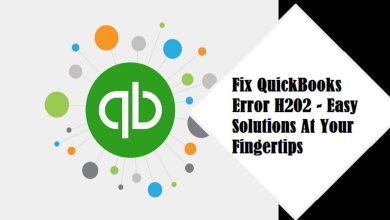SHOULD I REFINANCE MY HOME LOAN?

You can achieve your financial objectives more quickly by refinancing your mortgage. Also, it’s easier than most people realize. Due to Australia’s competitive housing market and the country’s favorable open banking rules, borrowers are in an excellent position to refinance their mortgages.
Knowing when and how to refinance for a better deal is essential given that home prices are rising, and interest rates are now at historically low levels. Here is a guide to assist you in determining whether refinancing is advantageous for you.
What is a refinance of a mortgage?
Refinancing your mortgage is changing from your present mortgage to a new one that offers better features and benefits, such as a cheaper loan with a lower interest rate. You have the option of refinancing with your present mortgage provider or a different one entirely.
Why would one refinance a mortgage?
One of the biggest investments a person can make in their lifetime is a mortgage. Be sure your house loan offers the features you require for the objective you are attempting to attain, regardless of your financial or personal situation.
Don’t assume your home loan delivers the best deal. Interest rates are constantly changing, and new, aggressive mortgage packages are being introduced. Thus, it makes sense to look into refinancing options for your current mortgage. particularly if you may save tens or even hundreds of thousands of dollars throughout your loan. Moreover, be sure you aren’t paying any more than necessary.
To borrow more money, change to a better loan package, or access extra features like an offset account, you can refinance your house loan. The possibility to consolidate your debt, a unique offer, adaptable loan terms, or lower fees could all be added advantages.
Advantages of refinancing
Refinancing your mortgage has many advantages, including the following:
. Get a lower interest rate to save money.
. Pay off your mortgage loan sooner
. Improve the perks, features, and flexibility of your loans.
. Availability of capital when required
. Debt consolidation will simplify payments.
Spend less on payments
You will save money if you refinance your mortgage, which is the main advantage. Your monthly payments will be reduced if you transfer house loans to ones with a lower interest rate. Reduced repayments could result in significant savings.
You’ll also keep more money in your pocket if your home loan has lower fees and related expenditures. Our home loan refinances calculator will demonstrate how much additional money you might be able to save using a straightforward comparative equation.
Pay off your mortgage sooner
Regardless of your circumstances, many Australians aspire to the financial independence that comes with owning their own house outright. You can lower your overall interest burden by transferring to a lender or home loan with a lower interest rate. This will consequently lower the overall sum of money you have to pay back throughout your loan. saving you perhaps tens of thousands of dollars.
Your loan term may be shortened if you refinance your mortgage while maintaining the same monthly payment amount. This might include paying off your mortgage sooner—say, in 25 years rather than 30.
Improved loan advantages, features, and flexibility are available.
Home loans come in a variety of shapes and sizes. A mortgage must match your financial and personal circumstances. Also, it should provide useful advantages besides interest rates that you will truly employ.
You can benefit both immediately and later on from additional loan benefits. The proper home loan package may have the following features:
Greater adaptability
simplifying the use of online or mobile banking services
having use of an offset account
the capacity to pay further repayments
lower costs
Release equity
The equity in your house is the sum of the remaining balance on your mortgage and the total worth of your property. Or, to put it another way, it’s the entire sum of money that has been paid off of your mortgage to date. Your equity will rise in direct proportion to the value of your property.
When you refinance your house loan with a higher loan amount, you have the option of using a cash-out option to access equity. You decide how to put the funds from your equity to use. You could decide to use the equity you have built up to make home improvements that will raise the value of your home, put a down payment on investment property, buy other things, or go on vacation.
How do I determine whether or not to refinance?
Only by analyzing your options can you decide whether to refinance your mortgage or keep your existing loan. To locate the mortgage choice that is ideal for you, get advice, do some research, and make comparisons.
When ought I to refinance?
When considering refinancing your mortgage, timing is crucial. Interest rates and your credit score are variables that affect this.
as soon as your credit score rises
Financial organizations can learn about your ability to repay loans from your credit score. A higher credit score makes you seem more trustworthy and risk-averse.
When providing home loan applications, this is an important consideration for lenders and mortgage brokers. Your options for the total loan amount you can borrow, loan conditions, and even interest rates depend on your credit score.
when rates of interest are low
Refinancing requires careful timing. Investigate your refinancing possibilities when interest rates are low to ensure that you aren’t paying more than necessary for your mortgage.
Refinancing your mortgage to a rate that is lower than your current rate could save you a significant amount of money if you are currently paying a high-interest rate. Your monthly payments will be lower and the total amount you must pay back throughout the loan will be much less if you lock in a fixed-rate loan at a low-interest rate.
Can I refinance when?
Refinancing has so many positive benefits. Understanding when to refinance is one thing, understanding when to do so is another. One of the largest expenses in life is a mortgage. When deciding to refinance, get as much guidance as you can to ensure that the solution you pick is appropriate for your unique financial and personal circumstances. The effort might be worthwhile given the savings.
I should renegotiate my mortgage—why not?
Even if you’ve previously been approved for a house loan, there’s no assurance you’ll be again with a different lender. You will have to reapply for your mortgage when you want to refinance it, just as you did the first time.
By taking into account all relevant criteria, make sure you stay clear of these typical refinancing errors.
Eligibility
Different lenders will have various eligibility requirements, terms, and conditions while processing a refinancing application for your mortgage. All loan applications in Australia are subject to final lender approval. As part of this process, the lender will consider your ability to repay the loan, your Loan-to-Value Ratio (LVR), your debt-to-income ratio, the status of your employment, and any other unusual financial circumstances that might have an impact on the lender or the borrower.
Situations on a personal and financial level
Your chances of being accepted could be harmed if your income, deposit evidence, or job situation has changed since your last application. This still holds if you’ve ever missed a payment on a mortgage. Also, your credit history and loan application history will be affected if you are rejected for a new loan application. The next refinance application can become more challenging as a result.
Increased loan-to-value ratio
Lenders will evaluate your loan-to-value ratio (LVR) when evaluating your credit application if it is relatively high. The quantity of debt you may have has a normal relationship with the magnitude of your LVR. Hence, the lower your LVR, the more probable it is that you will receive an offer for a refinance home loan with a reduced interest rate.
Added charges
Your existing lender may charge you fees if you refinance your mortgage. They include cancellation costs, early departure fees, and break cost fees. Moreover, there will be set up and establishment fees associated with your new home loan.
In conclusion, should you refinance?
One of the best financial decisions you can make is to refinance or change your house loan. It can mean the difference between buying a home sooner or later. To determine if your current lender has the best deal for you, compare the home loan market.
It’s common to think you don’t need to worry about a new house loan much longer once you’ve reached an agreement on it. especially if you’re keeping up with your loan term and making regular mortgage payments. Nonetheless, it’s a good idea to think about refinancing your home loan once you’ve had it for a few years.
You may receive more advantages from refinancing, such as access to equity for home renovations or the acquisition of an investment property. Or the chance to lock in a fixed interest rate, consolidate your debt, have access to an offset account, make additional mortgage payments, and have more flexibility, or access to an offset account.
Read more: When Should You Request a Personal Loan?





